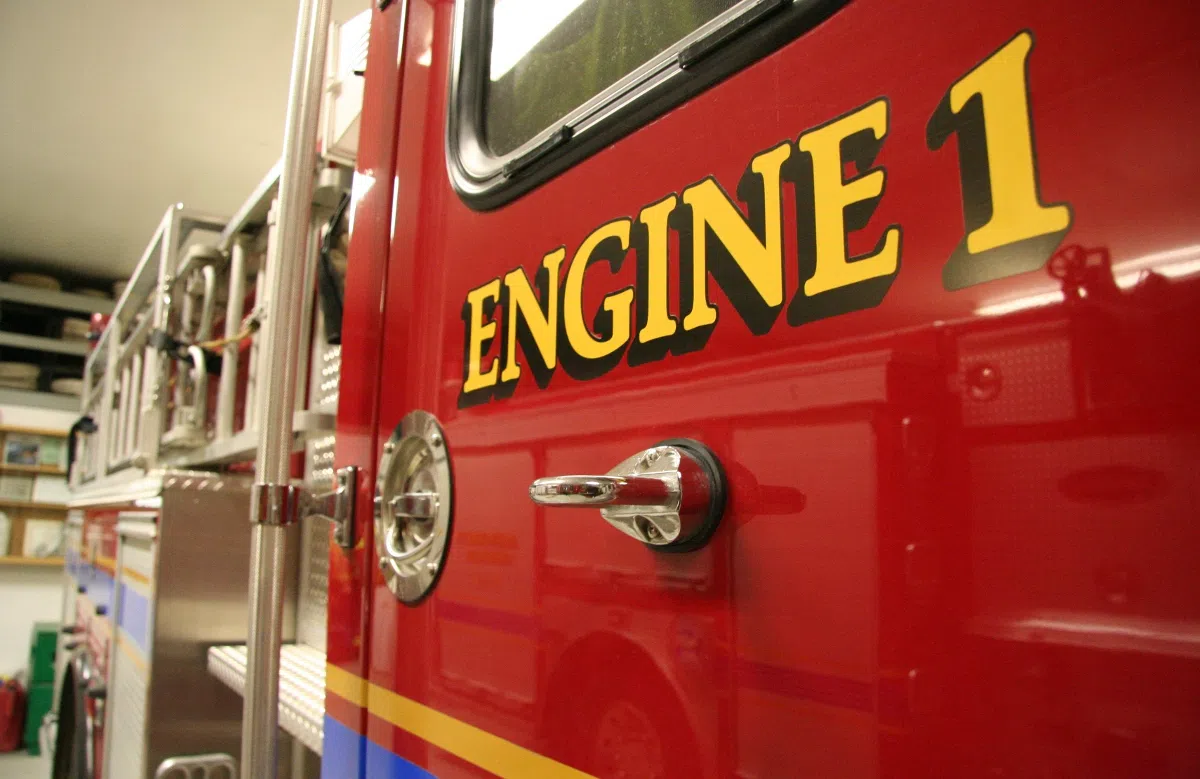
Going up in Smoke: working towards solving the fire response problem
Part two of a series on concerns with rural and remote firefighting
By Angela Hill
paNOW Staff
See Related: Going up in Smoke: issues with rural fire response

Part two of a series on concerns with rural and remote firefighting
See Related: Going up in Smoke: issues with rural fire response
The need for a well-co-ordinated plan for firefighting in remote and rural areas is becoming increasingly obvious.
A home in Timber Bay recently burned to the ground, killing two occupants and it was difficult for dispatchers to find a fire department to respond.
The strict municipal responsibility for fire coverage and independent agreements for mutual aid between communities aren’t working.
“It’s not a very efficient system in terms of the types of services required,” said Duane McKay, the province’s fire commissioner.
“We need to get to a place where there is the ability for resources to move across the province to help somebody, whether or not mutual aid agreements are in place.”
Within some sparsely populated areas of the province, communities may not have the resources to address an incident, whether it is a fire, train derailment or whatever they may face, even if they group together, he said.
A few years ago the Public Safety Review Committee was formed to look at protective services, including fire departments, search and rescue services and building inspectors.
Richard Kent, the commissioner of emergency and protective services with the Prince Albert Grand Council, is a member of that committee.
“One of the problems is we don’t have the mutual-aid agreements between all communities,” he said.
It is tough to do the work and send in a bill when there is no agreement, upfront.
A better co-ordinated response across the province is needed, so the municipalities that are closest to the fires aren’t worrying about compensation for their costs — they are worried about loss of property and life, said Frank Quennell, NDP MLA and critic for corrections, public safety and policing.
“We desperately need that and that’s been made clear by this last, tragic incident and I can only encourage the government … to work as quickly as possible towards a better co-ordinated system of fire protection for rural and Northern Saskatchewan,” he said.
The committee has submitted a report to the Ministry of Corrections, Public Safety and Policing and just recently wrapped up a pilot project in the southwest of the province, where a group did a risk assessment, said McKay.
They looked at the risks present in the community versus the level of services readily available, he said.
“We are working at it … any recommendation of course will have to go to the Ministry,” Kent said.
For the most part municipalities don’t want to give up autonomy, so it will take a while for municipalities and the province to come to some sort of middle ground that says here’s how this should work, McKay said.
With growing resources in the province, it’s easier to say the province can take this financial burden, and lift the burden from those who are fighting the fires, Quennell said.
“To take the burden on provincially and spread that evenly among the citizens of Saskatchewan and not download that, as it now is, on the municipality that has a fire or the volunteers that respond to a neighbour’s fire,” he said.
Kent said he wants to see the province divided into sections, “where a group of communities will be able to respond together to any emergency and … the province will look after the fees.”
“They will ensure it’s a level playing field … fees will be the same right across the board,” he said.
“That way the province will ensure that nobody will get taken for a ride down the road.”
Everyone needs to participate in the solution and everyone has similar issues — rural and remote fire departments, both on and off reserve.
“A lot of people don’t understand how First Nations work compared to non-First Nation communities and they are surprised to learn that you know they have the same problems on reserve as they do off reserve,” Kent said.
Whatever the decision on structure turns out to be, it has to include some local response and fire prevention activities, said McKay.
“A fire department to respond a half hour or 45 minutes at the beginning of a fire is not adequate to save lives, so you either have to prevent it or have something in place to slow it down until assistance arrives,” he said.
McKay said he hopes the submissions from the committee will be reviewed and the plans move forward.
“The cost of moving it forward, the question of how much do we spend it terms of the losses, before we do something about it? I think there is a fairly strong commitment to move forward,” he said.
Doyle Vermette, MLA for Cumberland, said he doesn’t want to wait until the report is finished. He is in the process of contacting the leadership of Timber Bay and surrounding communities to set up a meeting.
He said he wants to learn exactly what is needed and find out what the government can do.
“(We want to) find out what we can do to assist any community,” he said.
For more: Going up in Smoke: changing role of fire department
ahill@panow.com


